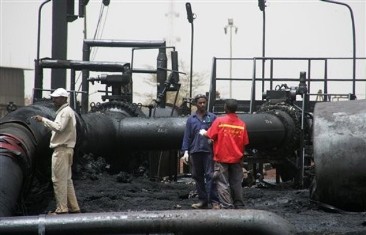S. Sudanese activists warn China not to interfere in oil deal
By Julius N. Uma
September 4, 2012 (JUBA) – As discussions on oil and other outstanding issues between Sudan and South Sudan commenced on Monday, a South Sudanese civil society entity warned China against interference in the policies of the two nations involved in negotiations.

The Chinese government, at the height of tension between the two nations, verbally offered to provide assistance towards helping both Sudan and South Sudan reach consensus, after a series of deadlocks on talks, facilitated by the African Union High Level Implementation Panel (AUHIP).
“China’s interest in playing a role in pushing the two parties to reach a deal should only be for investment purposes, but they need not interfere in the policies of the countries,” said Edmund Yakani, the Program Coordinator for Community Empowerment for Progress Organization (CEPO).
Yakani, at a press conference in the South Sudan capital, also accused China of an “irresponsible” policy of gaining profits and allegedly supplying arms to countries, implicating the latter in fueling conflicts in many countries instead of ensuring peace and stability.
South Sudan seceded from its northern neighbour in July last year, taking with it about 75% of Sudan’s oil, which for six years the north and south shared 50:50, under a 2005 peace deal that ended over two decades of civil war between them.
Since then, both countries have been involved in post-independence discussions seeking to resolve several outstanding issues including, citizenship and nationality, security, the border and status of the disputed oil-producing Abyei region.
The two negotiating parties, according to CEPO’s Program Coordinator, should also consider the social impact of oil wells and its waste to the surrounding communities where they are situated.
“As oil production resumes, we urge government and its partners to ensure that protection of communities surrounding the oil fields is taken as a priority,” he said, citing what he said were increasing cases of miscarriages among women living around the oil wells.
Yakani did not, however, elaborate much on the extent to which these miscarriages have impacted on child mortality levels in these areas.
Meanwhile, CEPO has urged the international community to push the two parties towards reaching a “voluntary” agreement that will ensure their full commitment to its implementation.
“They [international community] should not put the two parties on pressure, but help them reach a consensus through dialogue. What is agreed upon should be in the interests of the citizens of the two countries,” Yakani said.
The United Nations Security Council (UNSC), last week, urged Sudan and South Sudan to expedite and finalize their oil agreement and other related financial arrangements to pave the way for immediate the resumption of oil production and transportation.
South Sudan, early this year, shut down its oil production, after accusing its northern neighbour of confiscating its crude oil worth about $815 million. Prior to the shutdown, oil revenues accounted for nearly 98% of the South Sudan’s annual budget.
Last month, however, the two countries, under the facilitation of the African Union High Level Implementation Panel reached a deal, which could see the young nation pay US$9.10 for every barrel of oil produced in Upper Nile and $11.00 for every barrel produced in Unity State. In addition Juba also offered $3 billion as a transitional financial assistance to Sudan.
(ST)

